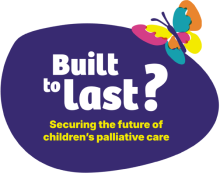Join the campaign for fairer end of life care for seriously ill children
Bereaved mother Clare is advocating for fairer children’s palliative care following her experience of caring for her son, Oliver, who died from a brain tumour when he was 11 years old.
Dear Prime Minister,
Right now, the system is failing thousands of families like mine.
My son Oliver was diagnosed with a brain tumour in 2022. In 2023, following treatment, his tumour returned. There would be no cure.
We wanted Oliver to die at home, but it wasn’t a given that this could happen. After being told that it would be very difficult to put a care package in place, I made a nuisance of myself. I spent hours on the phone pushing to try and get things moving.
Just before he died our friends and family took shifts to be with Oliver, and nurses worked beyond their hours to cover the care he needed.
In the end, Oliver died peacefully.
But to get to that point cost a lot. Families like mine aren’t getting the care they need, because of where they live.
You have the power to change this.
Yours sincerely
Clare Buchanan
Goal 2,500 signatures
1548 people have signed so far
"*" indicates required fields
Read Clare's letter in full

I had to fight for the right end of life care for my son
When Clare settled in the North West of England, she never thought she’d be fighting for her child’s care because of where she’d chosen to live.
Oliver died peacefully on 2 December 2023. Clare, Oliver’s mum, describes his death as “a good experience, if you can describe it as that.” But this isn’t the case for all seriously ill children across the UK.
Clare made herself heard to get access to the care she felt that Oliver needed. She says “I am very aware of how this time can unravel for families. So, we count ourselves lucky.”
The area where Clare lives is one of 39 in England which don’t, or only partially, provide 24/7 end of life care at home. This needs to change.

Our latest report: Built to Last? The State of Children's Palliative Care in 2025
Every child deserves the chance to live a full life, supported by care that enables them to thrive. Children’s palliative care provides this essential support to seriously ill children and their families – helping them spend precious time together and accessing the care they need, when and where they need it.
Yet our new report shows that despite some progress in the past year, families struggle to access this specialist support. Not because of the complexity of their needs, but because of where they live.
Our system is continuing to fail too many seriously ill children.





